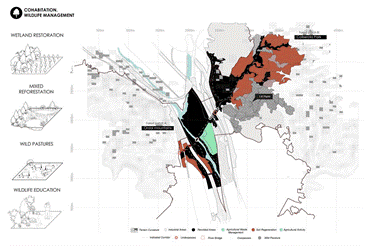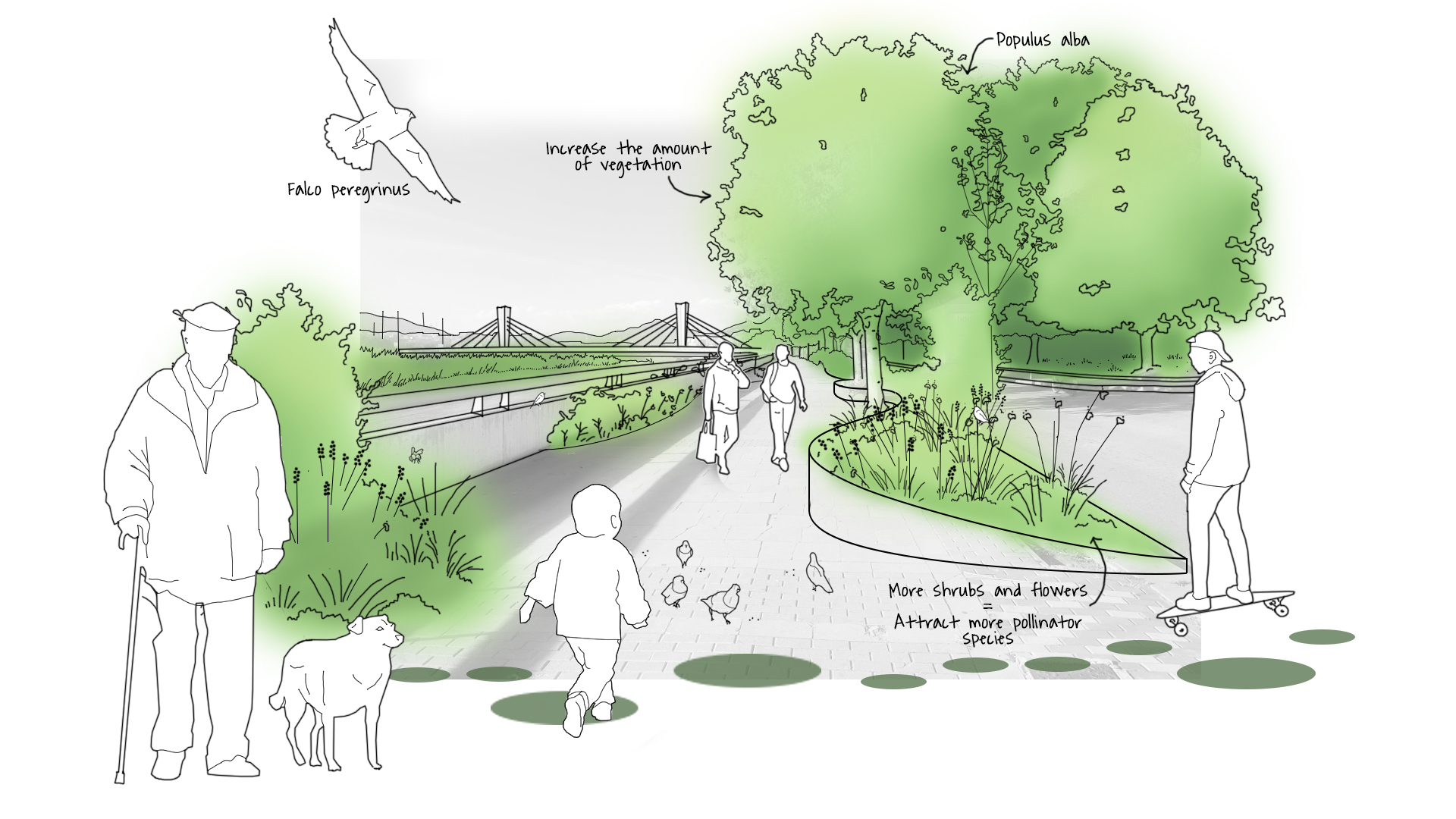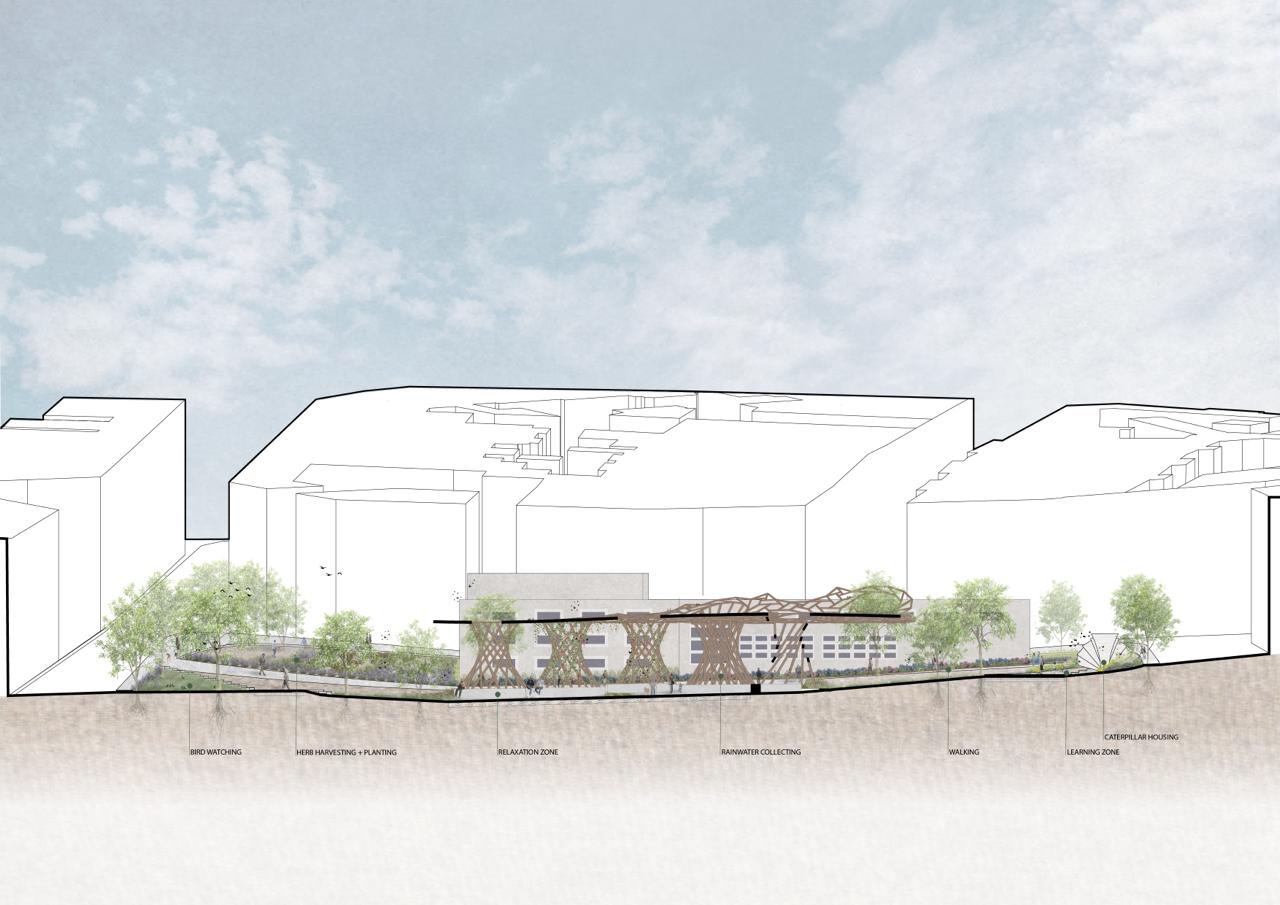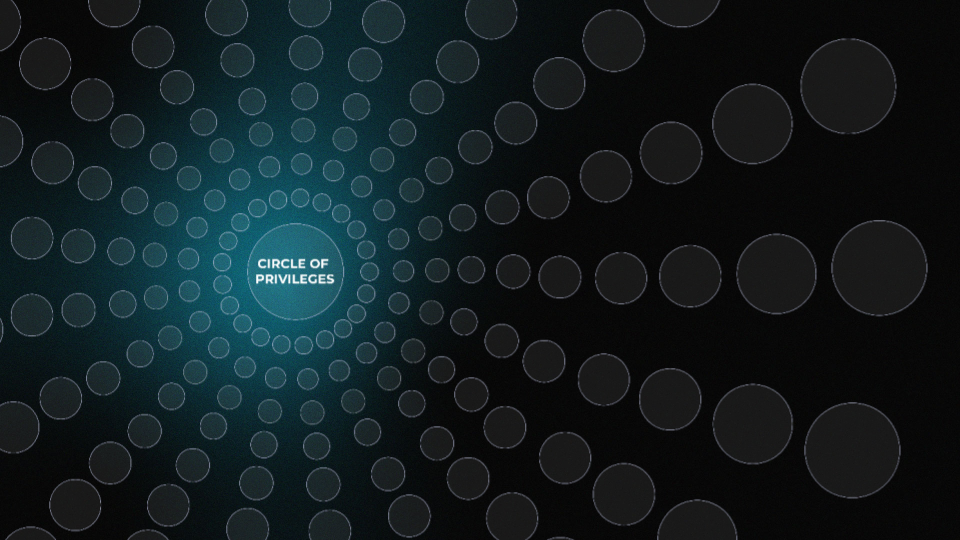
Credits: The Wild Deal is a project of the Master in City & Technology 01 – 2022-2023 by the students Reda Petravičiūtė, Christos Grapas and Roman Pomazan during the course MaCT01 22/23 Internet of Cities with Eduardo Rico, Mathilde Marengo and Iacopo Neri.
Description
Centres to human life, cities represent the main threat to fine ecological balances, but are also responsible at multiple levels for the health of citizens. Metropolitan areas are therefore key in addressing such issues to maintain the wellbeing of all living things. To this end, concepts like renaturing and rewilding offer an unprecedented challenge for designers: to approach urban landscape under a dynamic, collective, multidisciplinary and multiscalar perspective. These approaches are often developed in order to counteract the impacts of anthropogenic pressures on the ecology, rather than empowering ecology to actively adapt within today’s highly urbanised world, becoming an active partner within the definition of this transition. This is highlighted by the fact that the great majority of today’s legal systems only protect the rights of humans, often considering nature as one of the resources to be exploited “for the exclusive benefit of our own species.” (Thackara, 2015). These frameworks have the potential to empower designers to engage with nature as an active partner, questioning the status quo approach to considering and planning nature as a resource – for humans to exploit.
We aim to reconsider the polarisation between environmental forces and anthropocentric ones, providing an opportunity to consciously design for, and within, climate change adaptation, shifting inclusive design from a human-centric vision, to one that is also nature-centric. Students will delve into an exploration of how data driven methodologies can allow us to understand and plan for the needs of nature, collaborating actively with ecosystem engineers, with the goal of not only maintaining habitats, but also regenerating them, detecting and amplifying potential and beneficial ecological connections within urban and non-urban areas, in order to potentiate the ecological performance of the system as a whole, towards the development of strategies for life centred and resilient cities.
Learning Objectives
At course completion the student will:
- Be capable to download, manage and analyse spatial data on the neighbourhood scale.
- Understand the basics of qualitative data collection and analysis.
- Understand the basics of quantitative data collection and analysis.
- Understand the basic concepts of urban governance and participatory urbanism.
- Understand the basic concepts of climate change adaptation and mitigation.
- Design in a real-situation urban project or proposal, managing both quantitative and qualitative data that supports it.
- Combine design, indicators, citizen-centred and nature-driven processes to support an urban transformation proposal and narrative.








